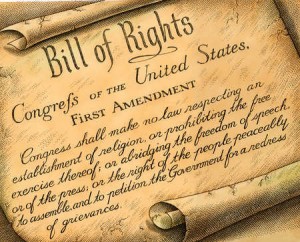 We just returned from Britain, where there is chilling discussion about imposing more regulation on the press. The occasion is a probe into reporters’ news practices and relationships between particular politicians and the media.
We just returned from Britain, where there is chilling discussion about imposing more regulation on the press. The occasion is a probe into reporters’ news practices and relationships between particular politicians and the media.
The entire series of events demonstrates why our First Amendment guarantee of press freedom is so important.
The probe resulted from the revelation of unethical and illegal practices by a single British tabloid, The News of the World. Given the limited scope of the scandal, the investigation should be one of limited public interest.
But the News of the World was one of many news outlets owned by Rupert Murdoch, so anti-Murdoch politicians and rival media are seizing the opportunity to escalate their long-standing vendetta against him. These politicians and rival media are disproportionately on the left side of the political spectrum, and they find Murdoch distasteful because several of his leading outlets (e.g., the Wall Street Journal, Fox News, New York Post) have conservative editorial policies. (Those outlets are untouched by the scandal.) Moreover, the British investigation has focused on relationships between reporters and two figures much-loathed by the Left: Prime Minister David Cameron and former Prime Minister Tony Blair.
You can be sure, of course, that if Murdoch owned left-wing outlets, that some right-wing politicians would be screaming for regulation also.
Some “holier than thou” politicians now purport to be horrified by the way Cameron and Blair courted the press. But their disclaimers ring hollow.
Everyone who enters politics soon learns that close relationships between politicians and the press, particularly the mainstream press, are the norm. (I learned this during my years as a political activist and candidate.) At a minimum, mainstream reporters have to mute what they write about sitting office holders so they can maintain access to sources. Less scrupulous reporters amplify messages promoted by favored politicos and dig up (or manufacture) dirt against political opponents.
But the virtue of a free press is that when the mainstream media have been corrupted in this way, the door is always open to upstarts willing to act more honestly and more aggressively. Obviously, this is inconvenient to the political and media establishment, which helps explain why the Brits are now discussing more government control. Advocates of more regulation will come up with plausible-sounding reasons for it, but history shows that no good can come from it.
Our Founders knew this. That’s why when Independence was declared several states adopted bills of rights that protected press freedom from state restriction. And that’s why the Founders adopted the First Amendment to protect press freedom from congressional restriction.
My book, The Original Constitution: What It Actually Said and Meant, includes a section discussing the original scope of the press guarantee of the First Amendment. It’s somewhat different than the version of the First Amendment the courts apply today, but even the version the courts apply today is a lot better than what some are threatening to do in Britain.
- The Truth about the Much-Abused Commerce Clause - February 28, 2024
- The Meaning of “Regulate Commerce” to the Constitution’s Ratifiers: An Update - February 7, 2024
- Why It May be Impossible to Disqualify Trump from the Presidency - January 8, 2024

